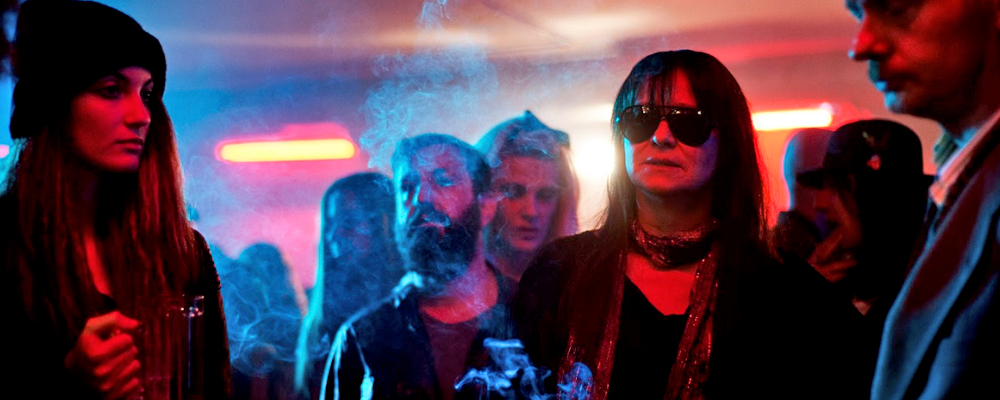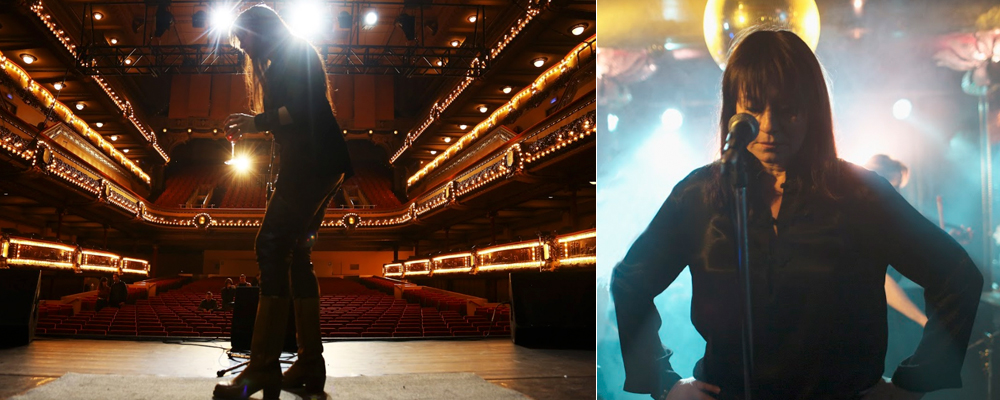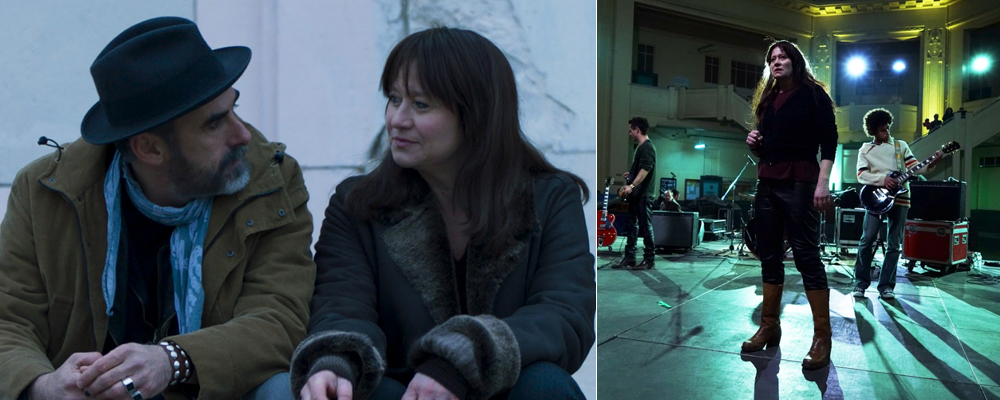‘Nico, 1988’ Paints a Haunting Portrait of Icon’s Final Days
Alci Rengifo
We remember many of the great pop culture icons through their youth, and the photos of their prime. Seldom do we reflect on the final chapters or the later years. “Nico, 1988” is about the final days of Nico, real name Christa Päffgen, in her zenith the tall, blonde muse of Andy Warhol, Lou Reed and The Velvet Underground. By the tail end of the 1960s, Nico had gone solo, producing eerie, avant-garde music. In this film the parties have turned into hangovers. Actress Trine Dyrholm, in a performance of impressive creation, does not impersonate Nico, but channels her like a fallen empress.
It’s the late 1980s and Nico (Dyrholm) is no longer the blonde model of the 1960s rock underworld. Her hair dyed black, her skin now wrinkled, she is on a rugged tour with a small band, performing her own material. She does interviews where the young insist on asking about the Velvet Underground and her known affairs with icons like Jim Morrison. Her new manager is Richard (John Gordon Sinclair), who has left everything behind to represent her and revive her music. But it’s a hard road to travel as Nico still deals with heroin addiction, a habit she has passed on to her son Ari (Sandor Funtek). Her band, including violinist Sylvia (Anamaria Marinca) and guitarist Alex (Calvin Demba), deal with their own love affairs and the pull of drugs while playing small, and at times near empty venues, crossing into the Czech border or staying in shabby motels. Sometimes lost in memories of the past, while confronting the harsher present, Nico finds solace in her only true home, the stage, where the songs become a conduit for her deepest scars and greatest joys.
“Nico, 1988” can be viewed as a work of deep, elegant iconoclasm. Director Susanna Nicchiarelli avoids the standard clichés of most rock biopics and imagines Nico after the glory. Only very briefly do we get small flashback sequences of her as the famous blonde figure from the Andy Warhol days, instead Nico is presented here off the pedestal, bitter but still capable of happiness. The road and drugs are not romantic in this film, but feel like hard, almost unwanted work, done only for the purpose of surviving. Nico prefers to have conversations, or eat spaghetti with an Italian concert promoter named Domenico (Thomas Trabacchi). Her allure and dark charm are unmistakable, even when she throws fits on stage and in front of concert managers when there’s no heroin around. Nicchiarelli achieves a special intimacy in which we get to know the band well, and by the end we feel as if we’ve been traveling with a troupe, knowing their secrets and habits. The screenplay by Nicchiarelli is a real attempt at forming a character. In the opening scenes we see Nico as a child during World War II, watching the distant fires of bombings. Her dialogue throughout is never cliché, but full of rawness and intelligence. Some rock biopics make the mistake of attempting to dramatize the album cover persona, preferring to re-create famous incidents and flashy concerts. With a small budget, Nicchiarelli wisely focuses on Nico after the glitz, because what she produces is a sharp vision of an individual with talent, but dealing with painful memories and the end of past glories. “I read everything I could about Nico,” Nicchiarelli recently told Entertainment Voice, “and watched all the available footage and interviews. She was such a unique personality. I also spoke with as many people as I could find who knew her. Dominico was a real person, the scene with the spaghetti really did happen, that’s how he described it.” For Nicchiarelli the later years of Nico’s life are more interesting than the 60s heyday. “I wasn’t interested in doing a traditional rock n’ roll movie, I wanted to explore a period that really tells us something about who she was.” Nico’s own music remains a cult object, too avant-garde for the mainstream, but strong enough to leave an impression and be an influence.
The visual tone of this film has the effect of a somber dream, as Nicchiarelli combines an almost documentary sensibility with cold, Nordic landscapes, scored to Nico songs like “My Heart Is Empty,” “These Days” and the classic cut, “All Tomorrow’s Parties.” But the beating heart of this film is the astounding performance by Trine Dyrholm, who never feels as if she is pretending to be Nico, she is instead crafting a character that belongs specifically to this movie while channeling the idea of the icon. Much of the road material is imagined, so Dyrholm and Nicchiarelli are free to imagine what might have gone on behind the scenes. Even more impressive, Dryholm sings all the songs herself in the film. Her voice not only matches Nico’s, but turns the songs into something even more potent, especially during a concert scene in Czechoslovakia where the shadow of Communist repression seems to inspire her to come alive and deliver a feverish, scorching performance. Dryholm recently told Entertainment Voice that, “I didn’t want to do a copy,” adding that for her Nico is, “strong, a mother, humble, a bitch, kind, but insecure, a bad mother, but a good person, she is complex, very complex.” Already approaching the role with a background in music in her native Germany, Dryholm was able to interpret the music both as a singer and actress. This gives a scene where she is asked to perform in the restaurant lounge of a hotel where the band is staying a unique ambiance, as she struts out like the experienced artist that she is, and sings “Nature Boy” with both a jazzy air and gothic vibe.
The film closes with tragedy, while avoiding a scandalous tone. Ari would eventually meet a tragic end, much fueled by the drug habit he adopted from his mother. Nico herself would die as a result of her own vices. But Nicchiarelli avoids a tragic death scene or moralizing, she wants us to know this woman and her songs. If there is any commentary on the consequences of her lifestyle it is one flashback, where Ari is a small child is left behind at a party while the younger Nico goes off to hang out with the denizens.
“Nico, 1988” is more than a rock biopic, it is a haunted portrait of a unique individual who lived through a generational shift, and slowly faded like a dying star near the end.
“Nico, 1988” releases August 1 in New York and August 3 in Los Angeles.



